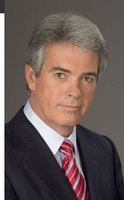The Liberals dealt with the issue by simply asking the AG’s office to stop the audit work and leave, [Auditor General John Noseworthy] said.
Asked if it smelled of a coverup, he said: "They asked us to stop our work and leave. So they certainly didn'’t seem interested in knowing what else was going on."
...
Premier Danny Williams, vowing to restore transparency within government, decided in 2004 the AG should be permitted access to the legislature's financial records.- "Earlier AG investigation quashed”, The Telegram, June 24, 2006, p.1."This has surfaced as a result of the initiative my government took in basically having the auditor general go in and look at this matter," [Premier Danny Williams] says.
"I have a responsibility as premier and leader of the province to put these things on the table...but I think they [the people of the province] need to know that as their leader I will certainly be decisive and I'll act on it very quickly."- "Ripe for abuse", The Independent, June 25, 2006, p. 4.
Think about how many times in the past week you've heard or read these comments or ones similar to them coming from either the Premier, the Auditor General or, as in The Telegram story, reported as a matter of fact.
In political circles, what you see here is an example of framing the issue. Language is selected, certain facts are highltighted and both are repeated by several, apparently independent or credible sources. A frame is a way of managing an issue. it is a way of guiding a discussion by telling what ought to be looked act and either deliberately or inadvertently leaving out other
aspects.
The frame is a way of influencing how issues are perceived, and in many cases is a way of pointing to the resolution that will follow.
The frame used in the examples above is very familiar. There is a problem and the Premier, personally, will resolve it. In fact, the current Premier - not of the party that was there before - made the crucial decision in 2004 to allow the Auditor General back to the House of Assembly to audit the legislature'’s accounts.
The problem with the Premier has placed around alleged misappropriation of funds from the House of Assembly is that it is wrong.
It is wrong for at least three reasons of fact. First, no Premier can make decisions about how the House of Assembly administers its funds, or oversees the administration of the House of Assembly itself. That job falls to a committee of members appointed according to the Internal Economy Commission Act.
Second, the frame used by the Premier and others is wrong because it suggests a partisan origin to the problem, when in fact the Internal Economy Commission is made of members of the House of Assembly from both the government and from the opposition. In 2002, the IEC voted unanimously to bar the Auditor General from auditing the House books.
Third, the frame is wrong because the decision to allow the Auditor General to review the House accounts did not prevent the alleged abuse of funds in the first place. It merely allowed the abuse to be detected after the fact. The root of the problem here, as Auditor General John Noseworthy has hinted, is the decision taken initially in 2000, reaffirmed by the IEC unanimously in 2002 and continued by the IEC after March 2004 to allow House of Assembly officials to request money to pay expense claims by members without submitting receipts to the province's Comptroller General. Apparently, they didn't even have to indicate whose claim or claims were to be paid by the money requested.
Aside from those matters of fact, we have to be careful about the frame we accept on this issue because of the wider implications.
At the most fundamental level, if we accept the frame already applied to this issue we will miss the legal responsibilities of the members of the IEC for overseeing the legislature‚’s administration. Each member knew or ought to know about the checks and balances provided by law. Each knew or ought to have know of the generally accepted practices designed to ensure money is spent properly and that only the amounts voted by the legislature are spent on the the things they are to be spent on.
When the IEC decided after 2000 not only to bar the AG from auditing the books but also to request money without the checks and balances provided in the Financial Administration Act and elsewhere, they created the very environment which led to the problem with which we are now are now faced.
The IEC members are not just anyone. They are the most senior members of the Opposition; those who sat on the IEC four and five years ago now hold the most senior positions in the current administration. The IEC also included experienced and senior members of the former administration, including a future Premier and the then-Minister of Finance and President of Treasury Board. It is difficult to imagine they were not familiar with the province‚’s financial administration laws and with the government's own internal administrative practices, all of which are designed to frustrate attempts to misappropriate public money.
In dealing with the issue now in front of our eyes, we would be remiss if we did not review the actions of the IEC in the period after 1999. Full accountability demands no less. For those who want to look for a guide to how broad this investigation should be, take a look at Auditor General Sheila Fraser's report into spending practices at the Office of the Privacy Commissioner. While it may be that a review will find the IEC acted generally in a proper way, we cannot ignore the possibility that, to paraphrase Fraser, certain individuals willingly or by omission turned a blind eye to the potential for the abuses now alleged to have taken place.
Beyond that, however, by accepting the notion that the Premier - any Premier of any political party at any time - can personally and individually dictate rules for the House of Assembly we would be continuing the steady erosion of the most fundamental check on public spending on which our democracy is based.
The Premier is the head of the government administration. However, the cabinet he or she leads derives authority to spend public money based on the consent of our elected representatives in the House of Assembly. The legislature is separate from government to ensure public oversight of government activities in every respect. These representatives are accountability to us, as it is our money they are spending to advance our interests.
The Auditor General summarized this idea as succinctly and eloquently as anyone in her report for Fiscal Year 2000:
Full accountability requires that Government, its departments, agencies of the Crown and Memorial University of Newfoundland be held accountable to the House of Assembly for their use of public money and the delivery of their programs. The need for true accountability dates back to the time when the democratic system of government was established. A democratic form of government requires as a minimum that government, its departments and agencies of the Crown report annually to the House of Assembly, the same body which provided the monies to fund their programs, on their financial and operational results.Over the past decade, we have seen successive government administrations make more and more decisions without any scrutiny by the elected representatives of the people of our province.
In 1997, the Premier'’s Office gained de facto control over spending by the Lower Churchill project office. Over $57 million of public money - from the Hydro corporation‚’s funds - was spent by 2003/2004 without a proper accounting of the spending to the Hydro board of directors and without any but the most vague oversight by the House of Assembly. Even after this was brought to public attention shortly after the Williams administration took office, the Lower Churchill project office continues to operate in generally the same fashion as it has in the past.
The Auditor General also criticized the practice of creating Crown corporations using simple administrative means rather than through legislation, as has been the practice for decades. In the same report that raised the issue of auditing the House of Assembly accounts, the Auditor General - now the member of the House for Topsail - noted that up to 2001 fully 16 Crown corporations had been created solely under the Corporations Act. The Auditor General felt that these corporations were incurring public debt without appropriate legislative authority. It is curious to note that while some of the 16 were incorporated as far back as 1950, half were created in 1996 and the years after.
Times have not changed for the better. In this past session of the legislature alone, the cabinet was handed the authority to approve the break-up of Fishery Products International without any further reference to the legislature. In the last days of the last sitting, cabinet was also given the power to turn the Hydro corporation to whatever purpose it felt the corporation should do. As a result, cabinet now has the authority to incur as much debt and engage in as much spending of public funds as it sees fit and all without a requirement to seek the cursory approval of the legislature, let alone provide a complete accounting of its actions.
This current issue allows the opportunity to correct the erosion of the legislature's responsibilities but, unfortunately, the limited frame offered by the Premier has been too readily accepted. Hasty decisions are being made. The Premier, who cautioned against making snap judgments, will impose new policies this week before many of the investigations have even gotten underway.
No less an influential group than the editorial board of the province’s largest daily newspaper has already proposed that the legislature's spending be overseen by an unelected group: the epitome of an unaccountable and antidemocratic measure if ever there was one. The same editorial board has engaged in the cheap and easily cynical condemnation of all politicians, irrespective of facts, advising those who have taken issue with the Premier'’s usurpation of authority to "shut their mouths and stop whining."
The position taken by The Telegram is exactly what John Crosbie was talking about when told The Independent this weekend that this issue will “confirm for many that politicians in general are "a bunch of sleveens out for themselves. That's the biggest danger of all this. It hurts the province in the sense of distrust of politicians"…It's quite a blow."
John Crosbie is right. Unfortunately, the frame for this issue offered by the Premier serves to reinforce distrust of politicians. His approach, even fueled as it is by his own strong sense of ethics and his own integrity, may lead us to a situation which actually reinforces the very trends that led to this situation in the first place. His frame may well prevent us from looking deeper into this matter and dealing with all the issues we find.
Full accountability and the rehabilitation of our tarnished democracy demands that the members of the House of Assembly take control of this matter. A special committee of the legislature should be struck in an emergency public session to oversee a two-pronged investigation.
One prong is the police investigation which ought to be supported by both the ablest of forensic auditors and a judge of the federally- or provincially-appointed court with experience as a Crown prosecutor. This approach alone would ensure that the investigation can proceed and be seen to proceed without any potential hint of impropriety.
The second prong is to inquire into the House of Assembly itself. The best people to do this would be eminent members of the community who, by virtue of their considerable political and other experience, unimpeachable personal integrity, and commitment to parliamentary democracy can recommend all the measures needed to put the House in a proper state and begin the process of restoring public confidence in the most important of our public institutions.
The issues raised by allegations of misappropriation of public money cannot be addressed by any one person. They can only be addressed by collective action.
They can only be addressed by reframing the debate from a very limited one imposed in haste, even with the best of intentions.
--------------------------
Revised 26 June 2006. A later post will look at the Premier's announcement made on Monday morning.











